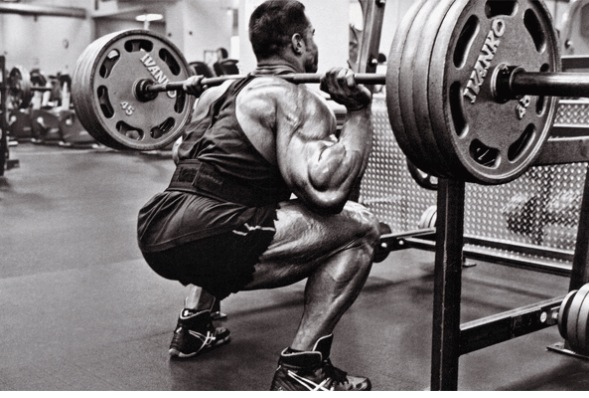Are Squats Really Necessary? The Science behind Squats
Love them or hate it, the squat is one of the best exercises out there. Whether it’s front squats, back squats, sissy squats, split squats, or pause squats, you need this exercise to build muscles. Squats are essential not only for big quads but for your whole body. Along with the leg press and deadlifts, squats produce a powerful neuroendocrine response.
Why Should You Do Squats?
Are squats really necessary? Most people who go the gym neglect the lower body and focus on building big arms and shoulders. This is a huge mistake.
What they don’t understand is that the body works as a whole system. Legs are the probably most neglected muscle group. Researchers have found that squats, deadlifts, push presses and other whole-body movements alter hormone and neurotransmitter production.
Neuroendocrine refers to the interaction between the nervous and the endocrine system. This means that when you do squats, your body produces more testosterone, catecholamines, insulin-like growth factors (IGF-1), and human growth hormone. These substances play a key role in muscle breakdown and rebuilding.
Squats and other exercises increase testosterone and HGH production, which helps increase strength and build lean muscle. Short rest intervals, high-intensity training, high heart rates, short rest between sets, and heavy training are all associated with a high neuroendocrine response. Squats can help you add mass and size to your legs. If you’re not familiar with this exercise, you may experience some muscle soreness until you get used.
How much should you squat to get results? If you’re training for strength, do up to five reps at 5-100% of maximum intensity (until muscle failure). For bigger legs, do 6-12 reps at 75-85% of your maximum intensity.
Let’s have a look at the benefits of squats:
• Increase stability and balance
• Tone your legs
• Strengthen your core
• Enhance flexibility
• Accelerate muscle metabolism
• Increase testosterone production
• Increase HGH production
• Work your quads and hams
• Boost your strength
• Build muscle in your whole body
• Help you burn fat
• Increase your physical performance
• Tone your abs
Since you use your whole body to lift the weight, squats make you stronger overall. Even though this exercise won’t add mass to your whole body directly, they allow your upper body to grow as well.
Because squatting is so hard on both your body and mind, it makes you stronger. Over time, you will be able to lift heavier weight with less effort due to stabilizers becoming stronger. Just think about how many muscles are actually hit when you do squats.
Build Strong Legs and Gain Explosive Strength
Squats should be the cornerstone of your workout. Whether you want to lose weight or build muscle, this is one of the best leg exercises you can do. Start with very light weight and keep practicing until you do them the right away. Later you can increase the weight gradually.
Doing squats is the fastest way to build strong legs and gain strength in your lower body. This basic exercise releases more growth hormone and testosterone than any other movement in your workout. If you’re a beginner or use heavy weights, perform this exercise inside a squat rack for safety purposes.









